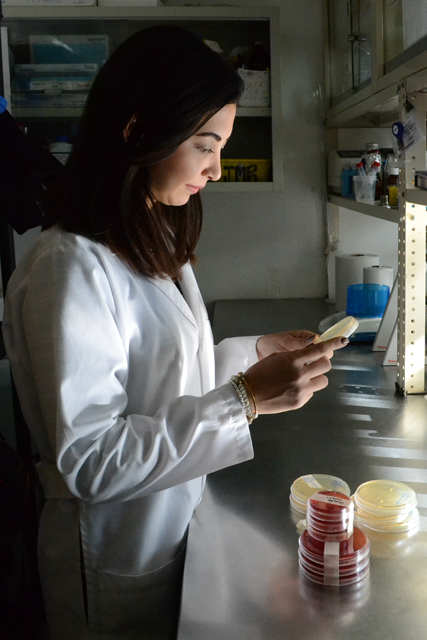- “Science Tuesdays”, “Talent Summer” and “Doing Science at BUAP” are some of the programs that aim to achieve this end.
“Tuesdays in Science”, “Summer of Talents” and “Doing Science in BUAP” are scientific and technological literacy programs promoted by Maximum Studies of Puebla, with the aim of promoting interests and careers in young people. Make the work done by researchers at this institution known to the general public.
Under the coordination of the General Directorate of Scientific Publishing, affiliated with the Office of the Vice President for Research and Graduate Studies, 850 academics assigned to the national system of researchers participate in these programs, who, in addition to their scientific tasks, share their knowledge.
Another program is Science on Board, which keeps its invitation open to students and professors from this university to join in poster proposal. The intention is to contain infographics on relevant scientific topics to be placed in UTS modules, with the aim that users will learn about these topics and spark their scientific interest during their travels.
In this regard, the President of the DGDC, Arturo Fernández Tellez, explained that the “Doing Science at BUAP” program invites students and university professors to participate in the development of a scientific project not exceeding two months, with the aim that the student can participate directly.
“Projects are submitted by the researcher and approved by their peers, so that once the call comes out, students apply in May, start in July, and finally submit a report. He explained that the university additionally provides an economic incentive for participants in these programs.
In collaboration with the Museum of Evolution, located at the Los Fuertes Civic Center, the “Tuesdays in Science” program targets youth in middle and high school. The intention is to disseminate topics related to scientific work, through talks given by BUAP researchers, who prepare a topic to attract attention in areas such as health, mathematics, physics, chemistry and other social or natural science disciplines.
As the name indicates, these talks are held every Tuesday in March, April, October and November, and participants are given some gifts to encourage interaction during these conferences.
Dr. Fernández Tellez added that this year the “Summer of Talent” program – which was suspended due to the pandemic – was also reactivated, through which it seeks to promote scientific and humanistic culture, as well as to strengthen the call for research in high schools among high school students. Different knowledge areas managed by BUAP.
In this case the university also gives a financial incentive to participants who have access to laboratories as part of a stay they undertake with a research professor in the academic units of the institution.
Complementarily, the Head of the Directorate stated that each academic unit has its own activities and programs for scientific publishing, such as conference sessions, markets, exhibitions and other activities supported by this agency. Likewise, the university maintains a relationship with the State Council of Science and Technology of Puebla to collaborate on strategies that promote scientific careers among youth in the state.
Speaking about the regional complexes, he said that they are working on projects in which the College of Veterinary Medicine and Animal Sciences cooperates, so that students from these sites can undertake research stays without having to travel to the city of Puebla.
When choosing to study a degree in any scientific discipline, various factors influence, such as the social and educational context in which the student develops; This is why BUAP seeks to transform learning into an experience that serves as a strategy to promote scientific and technological careers, thus moving towards a knowledge society.
Dr

“Social media evangelist. Student. Reader. Troublemaker. Typical introvert.”

:quality(85)/cloudfront-us-east-1.images.arcpublishing.com/infobae/TEQF6EONZRFGLLLDIDD4L2O4EE.jpg)

:quality(75)/cloudfront-us-east-1.images.arcpublishing.com/elcomercio/XU32LRAEZFDDPNVHLFU3CKVBYY.jpg)



More Stories
Venezuela ranks fourth in female leadership in science and technology in Latin America
In Portuguesa and Sucre they explore the wonderful world of science
The university court overturns the expulsion of two teachers and a chemical sciences student